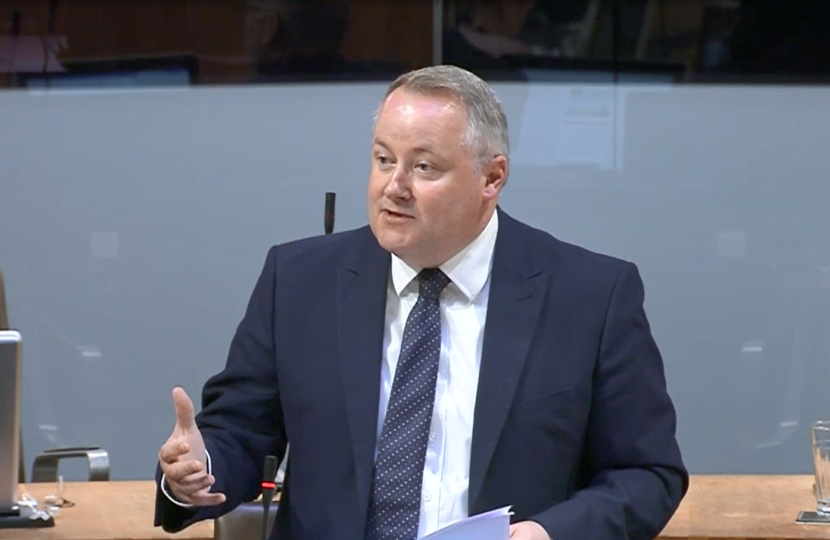
Clwyd West MS Darren Millar has hit out at the appallingly poor funding settlements given to Welsh councils by the Welsh Government, which have led to cut in services and inflation busting council tax hikes.
In a scathing contribution in the Senedd Chamber, Darren urged the Cabinet Secretary for Housing and Local Government, Jayne Bryant MS, to ensure councils receive the funding they need, and questioned her over the impact of the employer national insurance increases, announced by the UK Chancellor in her October budget, on local authority budgets,
He said:
“Cabinet Secretary, one of the challenges faced by local government has been the appallingly poor settlements, frankly, that the Welsh Government has given local councils in recent years. And that’s led, of course, to massive, inflation-busting increases in council tax for many ratepayers. What action are you taking, with your Cabinet colleague the Cabinet Minister for finance, to keep council tax down next year?”
“I know you like to blame these things on austerity, but you're responsible for the Welsh Government budget, nobody else. It's up to you how you carve that pie up in terms of the funding that comes to you. And I would remind you that, this year, your settlement was still at record levels. I know you don't like to admit that or say that, but it is the truth.
“We know that the Welsh Government's budget will increase next year. I'm sure we'd all welcome some additional finance, but what assessment have you made of the impact of the employer national insurance increases on local authority budgets, and what proportion of that will you be able to offset with increases, because you can't give with one hand and take with the other?”
He added:
“Ratepayers across Wales have seen double-digit increases in their council tax in recent years, and yet they’ve seen bin services cut - I mean, the situation in Denbighshire is they’ve seen rubbish piling up like the 1970s winter of discontent, frankly - we’ve seen libraries closing and hours being cut, we’ve seen public conveniences closing their doors, we’ve seen car parking charges increase, we’ve seen local authorities not able to invest in the infrastructure to protect their communities from flooding either. So, something needs to change.”
Darren also called on the Cabinet Secretary to follow England’s lead by providing local residents with a chance to have their say on any proposed tax rises of more than 5%.
He said:
“You clearly have no idea how much it’s going to cost local authorities in terms of the increases in employers’ national insurance and haven’t got a solution to be able to put before the Senedd on that. But one mechanism that people in England have to be able to ensure that their local authorities are held to account for the council tax that they pay is that there’s a requirement for local referendums to take place when excessive council tax increases are proposed.
“Is that something that you will give Welsh voters the opportunity to have when excessive council tax increases are proposed here in Wales in the future? Because, frankly, the public feel cheated at the moment, and it isn’t good enough.”
Responding, the Cabinet Secretary said "each local authority in Wales has the freedom to set its own council tax" and urged local authorities "to consider hard-pressed households when making those decisions".
She added:
“Council tax referenda don’t apply in Wales. Such arrangements do not allow the degree of discretion that exists in the current system for Wales, which provides local authorities with the maximum flexibility to plan and manage their budgets more effectively.”
